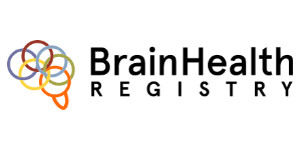Updates From Michael Weiner, MD Principal Investigator of the UCSF Brain Health Registry
 Although the COVID-19 pandemic has profoundly disrupted many research studies, it has also accelerated development and use of remote assessment tools for cognition. The UCSF Brain Health Registry (BHR), an online research registry of over 100,000 adult volunteers, has been an innovator in this area and has continued to move forward.
Although the COVID-19 pandemic has profoundly disrupted many research studies, it has also accelerated development and use of remote assessment tools for cognition. The UCSF Brain Health Registry (BHR), an online research registry of over 100,000 adult volunteers, has been an innovator in this area and has continued to move forward.
Through the Electronic Validation (eVAL) Study, my team and I are validating new, online assessments that evaluate a person’s cognition, functioning, and decline. Leveraging self- administered remote assessment to identify, diagnose, and longitudinally monitor individuals at risk for Alzheimer’s can positively impact dementia research, and accelerate the search for treatments.
Our team has also made strides in remote biospecimen collection and analysis. Blood and genetic material contain valuable biomarkers that can help evaluate dementia risk before the onset of symptoms. Through the Biomarker Prediction Study, we demonstrated the feasibility of remote blood collection. We also published a new paper on findings from the Brain Health Registry GenePool Study, which demonstrated that a key Alzheimer’s risk gene called APOE ε4 may affect memory and thinking, and that online cognitive tests are able to detect these effects.
To make BHR more representative of the general population, and research findings more generalizable, BHR has pioneered a series of initiatives to recruit underrepresented communities including Black and Latino/x adults. These projects include the CEDAR study, which is aimed at increasing engagement by Black participants, and the California Latino Brain Health Registry.
BHR spent 2021 working with professional translators and collaborators to create a Spanish language version of our study website, including Spanish versions of questionnaires and cognitive tests. A bilingual BHR is one step towards helping to improve future clinical research studies by making them more inclusive of diverse populations.
We appreciate all the support we’ve received from our participants and collaborators. We look forward to continuing our existing projects and beginning new ones focused recruitment of underrepresented populations and that further advance the development and validation of remote assessments in clinical dementia research.
Michael Weiner, MD is a professor of Radiology and Biomedical Imaging, Medicine, Psychiatry, and Neurology at UC San Francisco. He is the founder and principal investigator of the Brain Health Registry. Dr. Weiner is also the principal investigator of Alzheimer’s Disease Neuroimaging Initiative, the largest NIH funded observational study of Alzheimer’s disease. He is a physician and Alzheimer’s researcher with over 925 publications in scientific journals.

